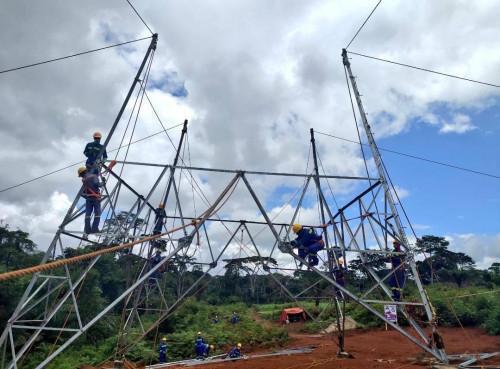
Cameroon: State-owned firms’ investments dropped by 67.4% YoY in 2019, despite the acute needs

(Business in Cameroon) - In the 2019 budget year, 44 state-owned companies invested XAF130 billion, according to a document attached to the 2021 finance law. Year on year, that volume was down by 67.4% compared with the XAF400 billion they invested in the 2018 budget year.
This significant drop was due to a decrease in investments in the secondary sector, namely the water and energy sub-sector, where they dropped from XAF240 billion to XAF50 billion between the two periods, the document explains.
Paradox
Yet, in Cameroon, the secondary sector (the water and energy as well as the industry sub-sectors) needs the most investment given the dilapidated state of its productive apparatus. In comparison, in the secondary sector, 61.3% of the productive apparatus is in a dilapidated state while that percentage is 26.5% in the primary sector and 43.8% in the tertiary sector.
This paradox is addressed in the presidential circular signed on August 30, 2021, laying the guidelines for the elaboration of the 2022 finance law. "Regarding public enterprises and establishments to be rehabilitated, priority will be given to those that can restore financial equilibrium after the improvement of production facilities and whose activities contribute to implementing NDS30 [ed. note: 2020-2030 National Development Strategy] orientations," the circular provides.
The sub-sectors selected by the NDS30 for its development goals are energy, financial services, agribusiness, digitalization, wood and forestry, textile-dressmaking-leather, mining-metallurgy, oil-petrochemicals-refinery, pharmaceutical chemistry, construction, and services.
Structural problems
Despite the President of the Republic’s instructions concerning the key sectors to rehabilitate, it is worth noting that public companies' investments pose structural problems. In its report on the 2019 performance of public and para-public enterprises, the technical commission CTR revealed that the operating costs of state-owned companies are usually high in Cameroon. For instance, in 90% of the cases, personnel expenses exceed 30% of the state-owned firms’ yearly turnover. Sometimes, those expenses exceed 70% of the yearly turnover. Therefore, there is not much margin left for the firms to function optimally, invest in their development, and settle their various debts estimated at XAF922 billion at end-2020.
Brice R. Mbodiam
Mags frontpage
- Most read 7 days
- shared 1 month
- read 1 month






























